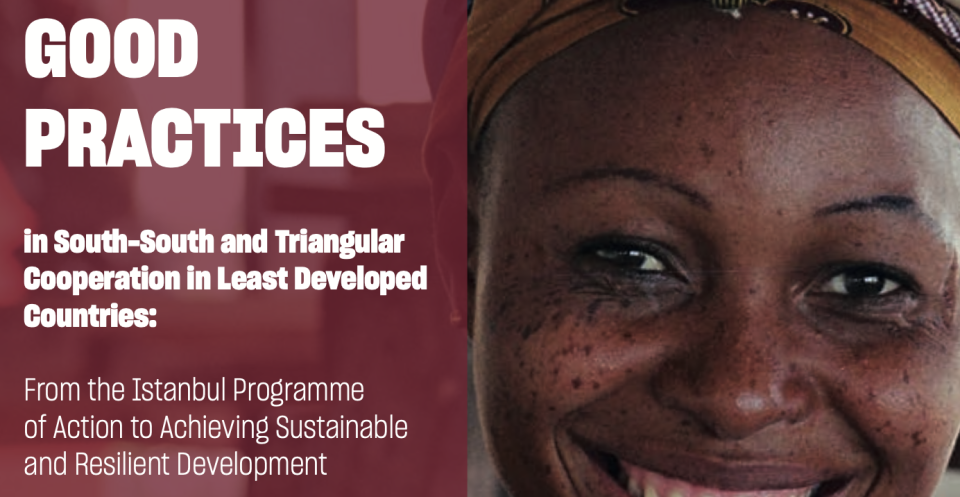- عربي
- 中文
- English
- Français
- Русский
- Español
Unlocking the Doha Programme of Action through new models of co-operation
good_practices.png

A new publication, launched the day before adoption of the Doha Programme of Action, explores how increased South-South and triangular cooperation can enhance the delivery of the new compact for the Least Developed Countries (LDCs).
The whole world is at a moment of profound change. Nowhere is this truer than in the Least Developed Countries, where the struggle with issues such as climate change, absolute poverty, food insecurity, and COVID-19 is existential and profound.
The global landscape of development cooperation has changed drastically in recent years.
Countries of the Global South – including the Least Developed Countries - are stepping up efforts to share innovative, adaptable and cost-efficient solutions to address their development challenges, as shown notably in their response to the COVID-19 pandemic.
It was South-South co-operation that enabled many LDCs to obtain urgently needed medications, vaccines and medical supplies during the early days of lockdown.
The crisis challenged the international community’s promise to “leave no one behind”. It demonstrated that solidarity and collaboration across borders and boundaries in the face of global challenges is the only way forward and brought global partnership to the forefront of international cooperation.
With the new Doha Programme of Action (DPoA) for the LDCs now adopted, and the Sustainable Development Goals (SDGs) halfway through their implementation phase, South-South and triangular cooperation (in which traditional donor countries and multilateral organisations facilitate South-South initiatives) will play a fundamental role in accelerating the development goals of the LDCs and beyond.
The DPoA marks a new decade of commitment and brings with it a fresh generation of partnerships through both South-South and triangular co-operation. This collaboration of global networks around the world is at the core of the new DPoA and the key ingredient to its success.
The DPoA encourages LDCs to effectively use both South-South and triangular cooperation to make strides in critical areas that are blocking their sustainable development, including development finance, trade and investment, human capital development, infrastructure development, renewable energy transition, and climate change response.
The report is a collaborative work of the United Nations Office of the High Representative for the Least Developed Countries, Landlocked Developing Countries and Small Island Developing States (UN-OHRLLS), United Nations Office for South-South Cooperation (UNOSSC), United Nations Capital Development Fund (UNCDF), and the Qatar Fund for Development (QFFD).
The full report can be downloaded in English here and in French here.





